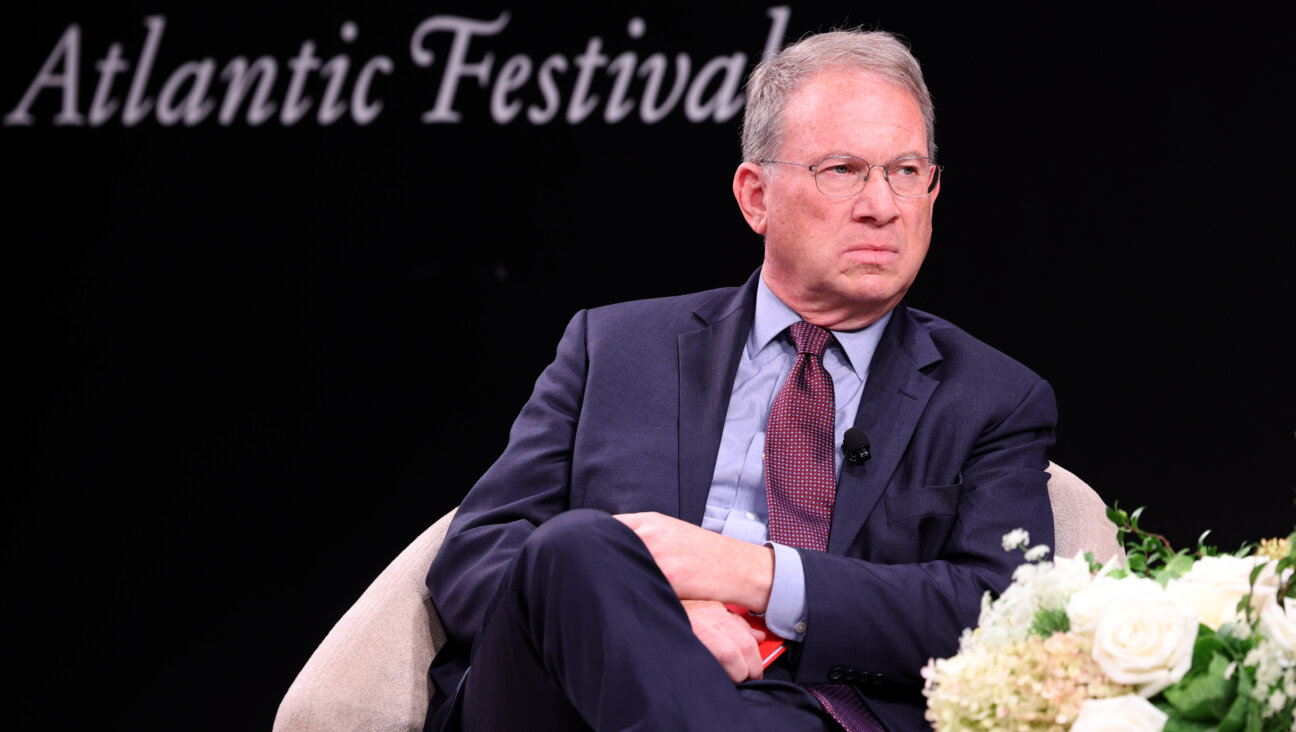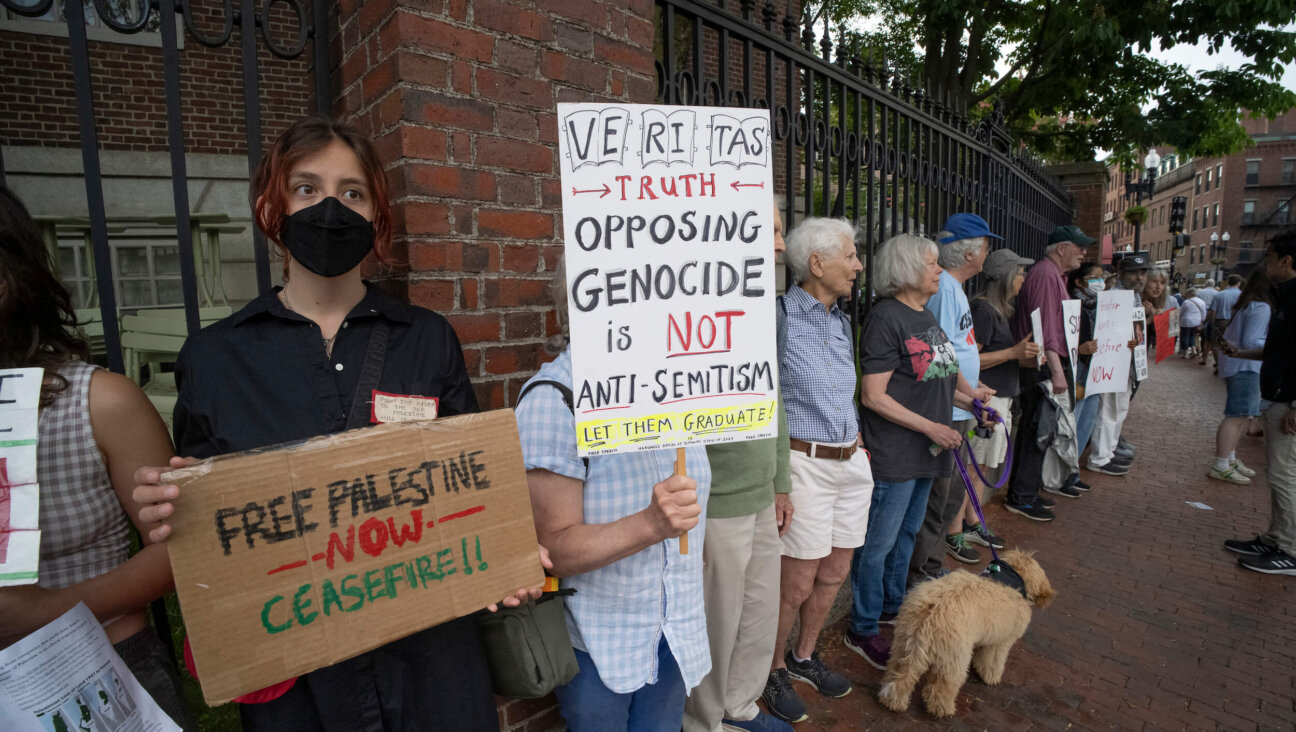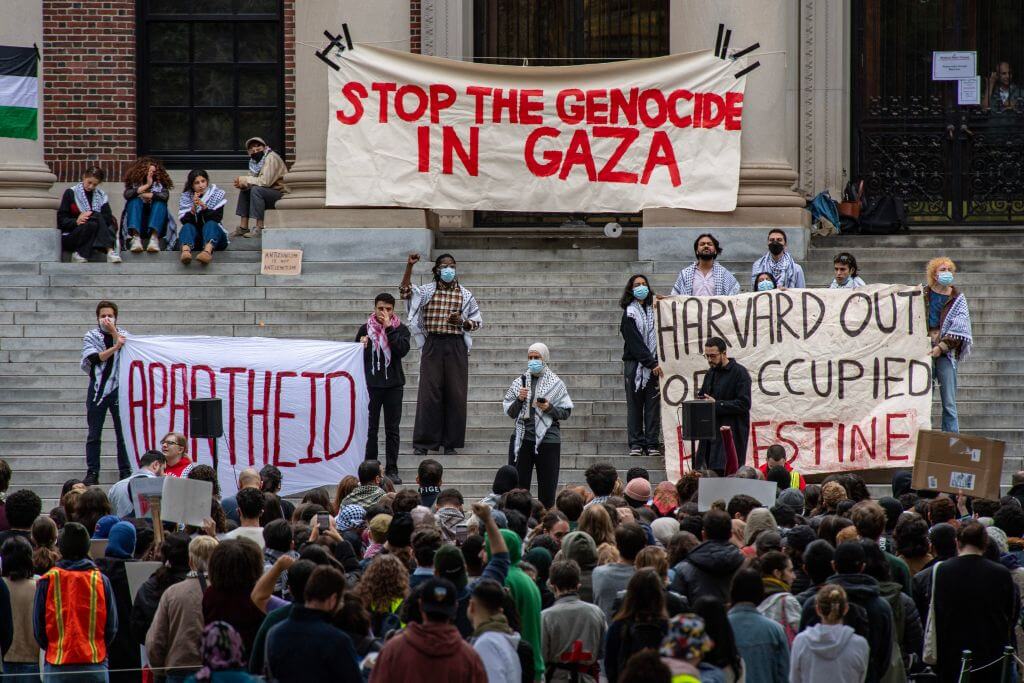Washington Seeking To Reduce Number of Anti-Israel Votes at U.N.
UNITED NATIONS — The United States is embarking on the most comprehensive campaign in years to reduce the number of anti-Israel resolutions routinely passed by the United Nations General Assembly.
Top State Department officials, including Secretary of State Colin Powell, have lobbied capitals, ministers and diplomats in recent months to reduce the number of votes in favor of such resolutions in the 191-member General Assembly.
American officials and observers say the unprecedented effort is largely the result of a sustained effort by the American Jewish Committee.
“This is definitely a very significant step forward,” said Richard Schifter, a former American diplomat who heads the international commission of AJCommittee and is the driving force behind the lobbying effort. “The U.S. realizes this need to be done because the obsession with Israel harms the U.N. and creates added problems in the attainment of peace in the region.”
AJCommittee and American officials said the goals included the consolidation of seven resolutions related to the U.N. agency in charge of Palestinian refugees into one. Another objective is to obtain a vote curtailing the funding for a division on Palestinian rights within the U.N. Secretariat that Jewish groups say does little but spew anti-Israel propaganda.
The American strategy was outlined in a letter sent on October 20 by Undersecretary of State for Political Affairs Marc Grossman to Minnesota Senator Norm Coleman, in which he referred to European and Latin American countries as the main focus of the campaign, according to a person who read the letter to the Forward.
Powell, for his part, has written to foreign ministers to stress the importance of the issue for Washington, according to diplomatic sources .
The debate on the resolutions related to the U.N. Relief and Works Agency, known as Unrwa, has yielded some results, with the Arab group indicating that it would accept a reduction to four resolutions. At press time, negotiations were underway to find a compromise.
“We are making a very strong effort because there has been a deep politicization at the U.N. on the issue of Palestinian refugees, so we want to spend less time on this, and consolidating the resolutions is the best way to do it,” a State Department official said, speaking on condition of anonymity.
The other main item on the American agenda is to obtain enough votes to stop financing a division within the U.N. Secretariat dealing with Palestinian rights.
Schifter, a former senior State Department official, said the division, called “the division for Palestinian rights,” was one of the seven composing the department for political affairs within the secretariat. While the six other divisions deal with worldwide and regional issues, the Palestinian rights division “engages in year-round anti-Israel propaganda” by producing reports, organizing conferences and holding commemorations, Shifter said.
The division was set up during the mid-1970s by a General Assembly resolution that has been renewed every year. U.S. officials are trying to cast the debate on the resolution, which is slated for late November or early December, as a budgetary issue, which requires a two-thirds vote.
The attitude of the European Union bloc, which commands some 40 votes, will be crucial, diplomats said. A European diplomat said no decision had been made on the issue.
“If the E.U. abstains and there are more votes against the resolution, it would be a big moral defeat for the Palestinians,” a Jewish communal official said, speaking on condition of anonymity.
A spokesman for the Secretariat declined to comment on the issue.
Calls seeking comments to the Palestinian mission at the U.N. went unreturned.
One key element of the administration strategy, Schifter said, is to deliver its message directly to the capitals rather than to missions in New York in order to avoid the bureaucratic habits and the effective lobbying by the Palestinian delegation at the U.N.
In addition to European countries, the administration’s lobbying efforts have focused on Latin America.
For instance, an insider said that in recent discussions with Latin American countries over a regional free trade agreement to be hammered out by the end of the year, American officials had made it clear that a change of attitude at the U.N. could entice Congress to be more receptive to voting in favor of a trade agreement.
One high-profile American advocate at the U.N. is former New York congressman Benjamin Gillman, who serves as a senior adviser to the American ambassador to the U.N. and has been delivering speeches to one of the General Assembly’s committees dealing with Palestinian issues.
“This year, we want to take advantage of the General Assembly’s president desire to reform the functioning of the General Assembly,” Gillman told the Forward, noting that the assembly was spending almost a third of its time on the Israeli-Palestinian issue. “We are beginning to get more support.”
The Forward is free to read, but it isn’t free to produce

I hope you appreciated this article. Before you go, I’d like to ask you to please support the Forward.
At a time when other newsrooms are closing or cutting back, the Forward has removed its paywall and invested additional resources to report on the ground from Israel and around the U.S. on the impact of the war, rising antisemitism and polarized discourse.
Readers like you make it all possible. We’ve started our Passover Fundraising Drive, and we need 1,800 readers like you to step up to support the Forward by April 21. Members of the Forward board are even matching the first 1,000 gifts, up to $70,000.
This is a great time to support independent Jewish journalism, because every dollar goes twice as far.
— Rachel Fishman Feddersen, Publisher and CEO






















